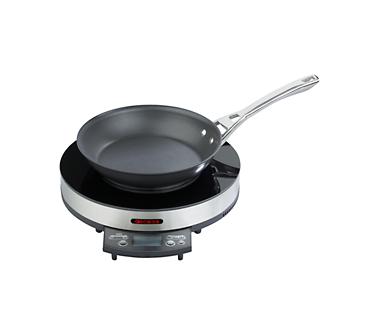Since there are bills being considered relating to food safety regulation, I thought I would take a few minutes to tread the contemptuous waters of political science. I won't talk about the bills themselves, just the basic principles of regulation, where I stand, and where politics gets in the way of good policy.
I have a strange mixture of ideologies. It's not strange to me, but it is to everyone else in this crazy polarized country of ours. Some people's ideologies are formed by fundamental beliefs, some by fact, and some by misinformation. My politics are a combination of facts and fundamental beliefs in how we should treat others. I have a certain level of expertise in food science and food safety, which tends to land me amongst many conservatives and libertarians, but I'm pretty liberal in all other fronts except maybe economic development theory.
This really sucks when talking to people about non-food issues, because as soon as food issues are brought up, I have to switch sides and oppose these otherwise nice/logical people. To liberals I say that you defer to the scientists when it comes to theology(age of the Earth/Creationism), and you defer to the scientists when it comes to Climate Change, but you completely abandon science when it comes to issues regarding food. Why?
Are you all food scientists that know things everyone else does not? No. Are you simply misinformed? Not really, because when I bring up the science behind something or studies indicating that I am correct, you'll reject them outright. You call them biased if food science experts do a study about food, then cite your own biased study from an environmental group. And by the way, would you hire a diesel mechanic or someone from the Army Corps of Engineers to cater a wedding? Would you trust a study on carbon emissions from a food scientist?
For whatever reason, food has become politicized, and I have a theory about this. Liberals seem to be in support of things that are niche markets, and small operations. Many of these movements tend to be on the radical side(meaning extreme, not awesome). Organic supporters want to believe that organic food has better nutritional value. Locavores believe that a cow that was processed nearby somehow tastes better. Raw milkers think that the statistically insignificant loss of some nutrients during pasteurization can cure all the ills of the world.
So this would appear to be a liberal set of beliefs regarding food, but hold on a minute, what happens when a large operation gets into these markets? Now the liberals create a new term, green-washing. Suddenly, everything they were so evangelical about(science be damned) is now insincere, cynical bunk. It's now Walmart and Tyson and Dean Foods trying to trick you.
The Food Hysteric's agenda - whether they realize this or not - is just a cover for being anti-corporate. Some of it may just be a counter-culture thing, but it's mostly a complete lack of faith that large companies can be interested in both profitability as well as safety(I think these corporation's legal/marketing depts would beg to differ with you).
So when legislation is introduced regarding food, it is written with this sort of anti-corporate populism that can end up ignoring science altogether. We propose strong reforms to eliminate BPA even though it is not even remotely dangerous at even the highest detected levels found in products that use it for packaging. One study I mentioned in one of my first posts took the highest amount of detected BPA in a product and figured out the least amount of that product it would take to harm someone. The product was Dole canned fruit and I think they calculated that you would have to consume several hundred pounds per day for a lifetime to get ill. But we have states voting to eliminate BPA because people are scared and it's political suicide to support it.
Local meat processors are freaking out because there is a push to see that the small operations verify the safety of their HACCP programs through microbiological testing - just like large processors do.
It's not science, it's politics. Small operators don't want to give up their profits to ensure their food is safe, but they are all too happy to see Tyson and Koch and Cargill have to pony up. It's a sick sense of satisfaction that Food Hysteric's enjoy when anything punitive is brought down upon a corporation.
Let me also say that I am pro-regulation. Yes, let's hold each other's feet to the fire and make sure we are doing all we can to have a safe food supply, but that means everyone. People have been pushing to mandate that the FDA inspect many more plants than it is. This seems rational until you realize that the FDA is critically understaffed, same with the USDA. So what good is new regulation in this instance, when it doesn't solve the problem of a poorly staffed agency? This is what happens when science and reason are suppressed in favor of politics, populism, misinformation, and hysteria.
Science isn't left or right. In fact, I'd say that most scientifically minded people I encounter are libertarian - not the fake tea-party libertarian, mind you, but the Ron Paul libertarians. Can science win? I sure hope so, or else our society will head for a second dark ages with lower crop yields, everything considered toxic, and nobody aspiring to enrich our lives through science and innovation.
p.s.
It isn't just food, that suffers our science illiteracy. NASA has been grossly underfunded for years. 'Too expensive. A waste.' people say. NASA only takes one half of one percent of the budget, but brings about jobs and creates technology that is used in many other industries.p.p.s.
The title of this blog post is a clickable link to read a story about BPA by Dr. Elizabeth Whelan. I urge you all to read it. Also, you can find me on Twitter @samvance and look me up on Facebook under the same name.









